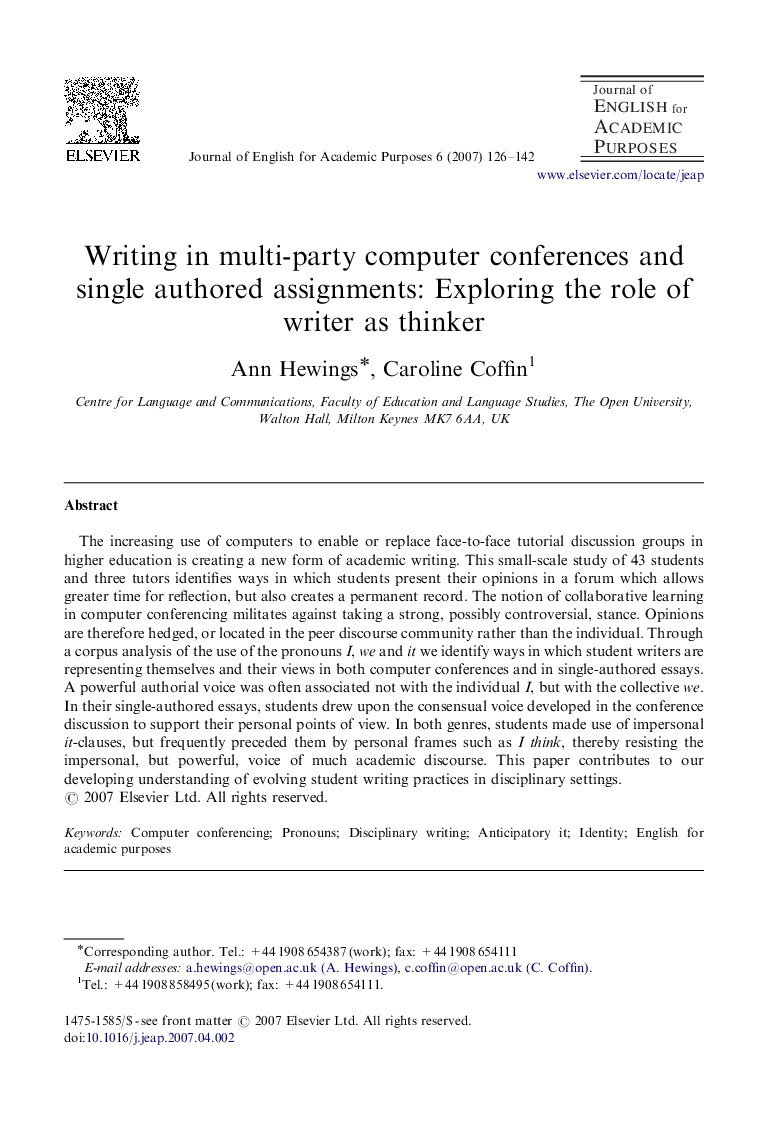| Article ID | Journal | Published Year | Pages | File Type |
|---|---|---|---|---|
| 360566 | Journal of English for Academic Purposes | 2007 | 17 Pages |
The increasing use of computers to enable or replace face-to-face tutorial discussion groups in higher education is creating a new form of academic writing. This small-scale study of 43 students and three tutors identifies ways in which students present their opinions in a forum which allows greater time for reflection, but also creates a permanent record. The notion of collaborative learning in computer conferencing militates against taking a strong, possibly controversial, stance. Opinions are therefore hedged, or located in the peer discourse community rather than the individual. Through a corpus analysis of the use of the pronouns I, we and it we identify ways in which student writers are representing themselves and their views in both computer conferences and in single-authored essays. A powerful authorial voice was often associated not with the individual I, but with the collective we. In their single-authored essays, students drew upon the consensual voice developed in the conference discussion to support their personal points of view. In both genres, students made use of impersonal it-clauses, but frequently preceded them by personal frames such as I think, thereby resisting the impersonal, but powerful, voice of much academic discourse. This paper contributes to our developing understanding of evolving student writing practices in disciplinary settings.
